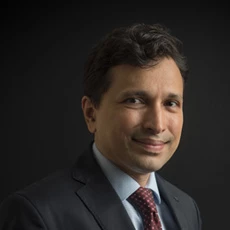-
Our Products
Our FundsOur High Return Funds
-
Self Care
Self-ServiceFind InformationWays To TransactPartner Solutions
-
Downloads
- Learnings
- About Us
-
More
-
Shareholders
-
Shareholders
-
Updates
-
-
Wealth Calculator
- Back
-
Shareholders
ABC Solution 

Loans
Insurance
Aditya Birla Sun Life AMC Limited
Aditya Birla Sun Life AMC Limited
Enter your details to visit our Metaverse

Enter valid first name
Enter valid last name
Enter valid email
+91
Enter valid mobile number
Enter valid otp detail
Select internet speed
Select privacy policy
Form Error
- Personal
-
Corporates
-
-
Advisors
-
Protecting
Financing
Advising
-
- Careers
- Mutual funds
-
Our Products
-
Our Funds
- All Funds
- Our Unique Solutions
- Our High Return Funds
- Aditya Birla Sun Life PSU Equity Fund
- Aditya Birla Sun Life Nifty Smallcap 50 Index Fund
- Aditya Birla Sun Life Pure Value Fund
- Aditya Birla Sun Life Infrastructure Fund
- Aditya Birla Sun Life Pharma and Healthcare Fund
- Aditya Birla Sun Life Small Cap Fund
- Aditya Birla Sun Life Midcap Fund
-
Solutions & Categories
-
-
Self Care
-
Self-Service
-
Find Information
-
Ways To Transact
Contact Us
1-800-270-7000 within india | +91-080-45860777 outside india | care.mutualfunds@adityabirlacapital.com -
- Downloads
- Learnings
- About Us
- Calculator
- Shareholders
-
Our Products
-
Our Funds
- All Funds
- Our Unique Solutions
- Our High Return Funds
- Aditya Birla Sun Life PSU Equity Fund
- Aditya Birla Sun Life Nifty Smallcap 50 Index Fund
- Aditya Birla Sun Life Pure Value Fund
- Aditya Birla Sun Life Infrastructure Fund
- Aditya Birla Sun Life Pharma and Healthcare Fund
- Aditya Birla Sun Life Small Cap Fund
- Aditya Birla Sun Life Midcap Fund
-
Solutions & Categories
-
-
Self Care
-
Self-Service
-
Find Information
-
Ways To Transact
Contact Us
-
-
Downloads
-
Learnings
-
About Us
-
Calculator
- Shareholders
Aditya Birla Sun Life AMC Limited
Explained Passive Investing
Mar 18, 2019
5 mins | Views 1956
“Passive Investing” is the new buzzword in the financial market. Initially what was thought to be a lazy man’s approach towards investment, it is now being touted as a smart and wise investor’s strategy. Through this approach, one seeks to maximize the returns on his or her investment with minimum actions (buying and selling).
Mutual Funds: Active or Passive investment
Mutual Funds could be one of the options for people who do not want to research & invest directly in individual stocks. It offers them a diversified portfolio. Now whether to invest in an active or a passive fund depends on a lot of factors such as risk appetite, understanding of the market and overall investment objective.
The philosophy behind active funds is “beat the market”. In simple terms, the fund’s performance is more lucrative than the market indexes such as Nifty or Sensex. The fund manager tries to select high-quality stocks that are likely to perform well.
Passive investment, on the other hand believes that it is not possible to continuously beat the market over a long period of time. In this, one invests in an index and waits it out for the overall market to do well. The trickle-down effect will ensure gains for everyone.
In simpler terms, investing in an index fund, which replicates the benchmark index, is called passive investment. This is one way of passive investing! Also, with the recent changes introduced by government, wherein people can invest in exchange traded funds (ETFs) through Employees' Provident Fund Organisation (EPFO) have made passive investment more attractive.
Why and how to choose a passive mutual fund scheme?
Here are some factors you should keep in mind while selecting the right mutual fund scheme for you:
-
Investment Objective
Mutual Fund schemes need to be chosen as per your investment objective. However, the idea behind opting for a passive fund is that since it may not be possible to consistently beat the equity market in the long-run, it is best to follow it! Thus, for relatively moderate risk level and with an eye for equity investments, Index or Passive investment can be chosen.
Difference between an Active and a Passive Fund: A passive fund replicates an index whereas an active fund strives to constantly outperform it!
Also Read - Passive Fund vs Active FundTip: Your investment objective needs to be aligned even when opting for simple index funds so that it is held for the adequate tenure!
-
Risk and Return:
Before starting the investment journey, it is very important to assess one’s own risk appetite. There is a direct co-relation between risk and return. So, if you have the ability to absorb higher risk, then choose equity based mutual funds.
Difference between an Active and a Passive Fund: : Fund managers of an active fund are exposed to higher risks in order to create the alpha over the underlying benchmark! Thus, an active fund has higher risk elements in it since it constantly focusses on outperforming the benchmark index, whereas the risk in an index fund is comparatively lower, although both are inherently equity mutual funds!
Tip: Index Funds are generally equity funds which invest in the same proportion as the benchmarked index. Be it Sensex or Nifty, be it large cap, mid cap or even small cap, risk verses return needs to be analyzed to choosethe type of Index Fund you need.
-
Expense Ratio:
The expense ratio in a passive fund is lower than an actively managed mutual fund.
Difference between an Active and a Passive Fund: : The performance in active investing depends on the skill of the fund manager to select the right set of funds. Hence, they charge a premium amount for fund management. On the other hand, passive funds involve a lower expense ratio.
Tip: The Total Expense Ratio for an active fund can be as high as 2.25% whereas the same for an index fund is capped at 1%. Thus, the difference in the expenses for a passive and active fund can be as high as 1.25%!
Market scenario
Although index funds have existed in the industry for over a decade now, most people still prefer to invest in active funds in anticipation of higher returns and actively managed funds by professionals who are experts in stock-picking and thus creating an alpha over the benchmark. Actively managed funds also cater to various investment objectives as well.
However, there has been a growing popularity of index funds, especially since the global market is slightly volatile with the weakening of INR with the ever-rising oil prices and the repercussions being in the Indian stock market. Since the indices have been chirpy and unpredictable for the last couple of years, outperforming them becomes quite a task! With the lower costs and higher post-tax yield, Index Funds are slowly paving their path to fame, especially with newer investors or high risk-averse ones.
Hedging your risks is one of the key aspects of investment. The same applies to opting for the right mutual fund scheme as well. It is a wise decision to have a healthy portfolio with all asset classes and market capitalizations without over-diversifying in the name of balancing the portfolio. After all, investment should be a well-thought off decision.
Mutual Fund investments are subject to market risks, read all scheme related documents carefully
Rate this
Rate this Article
 Our Experts
Our Experts
 Tools and Calculator
Tools and Calculator
 RSS News Feed
RSS News Feed
 Archives
Archives
Close
Hover to Zoom




 1800-270-7000
1800-270-7000








Thank You
Message will change according to your requirement.